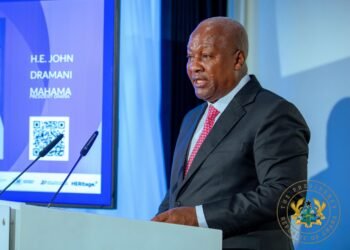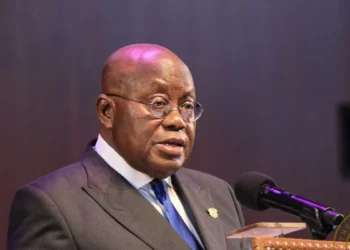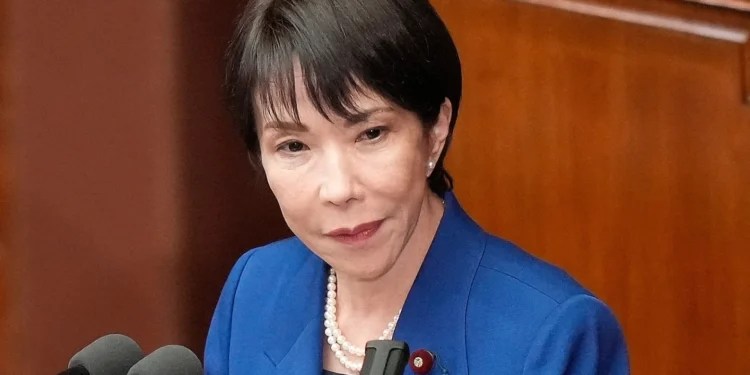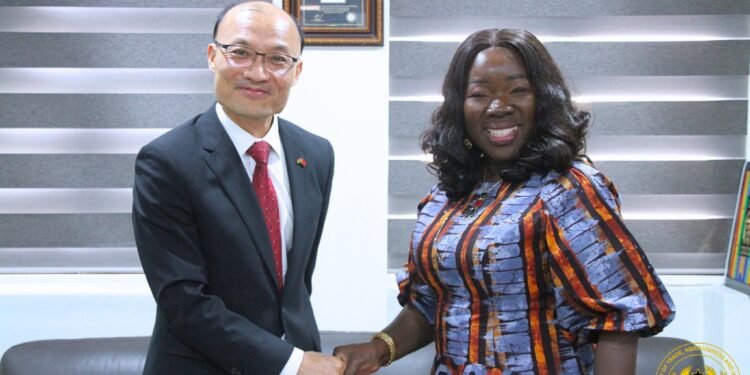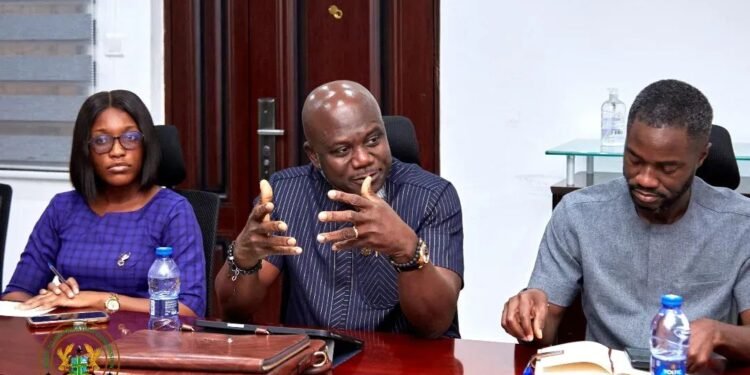Edem Senanu, Co-Chair of the Citizens Movement against Corruption, one of the Civil Society Organizations (CSOs) that sued the Attorney General over the appointment of an Auditor-General while one was still in position, has applauded the ruling by the Supreme Court that found the move by the President to be unlawful.
In an interview on May 31st, he stated that the court’s decision makes it very apparent to the executive branch of government that it cannot interfere with the operations of state institutions like the Audit Service.
When asked if the decision has vindicated them, Mr. Senanu replied that he would like to use the phrase “we are satisfied that the due process has been followed” rather than the word “vindicated.” He also noted that the Supreme Court of the country has declared that this was indeed a travesty.
“I think civil society was very united on this issue that it was not right for the Auditor-General to have been told to proceed on leave. The manner the whole thing went, it just did not fit well with our legal framework and so we are delighted.”
Edem Senanu
When asked once more if Mr. Domelevo should be brought back, he responded that it would be best to get in touch with him and find out what he wants to do. He said that it might not be easy to turn the tide of time, supposing Mr. Domelevo has moved on.
“More likely we are going to look at what we have to do moving forward. The beauty is that it sends a message to the executive branch of government that one needs to be cautious.
“When there are independent institutions of state set up as a counterbalance and you begin to influence the decisions of their processes, that will not augur well for our democracy, so it is a win for Ghana in terms of the separation of powers and the balance of powers in order to make sure that this country can run well.”
Edem Senanu
Domelevo’s Leave Order From Akufo-Addo Is Unconstitutional
The Supreme Court found that it was unlawful for President Nana Akufo-Addo to order the former Auditor General Daniel Domelevo to take a leave of absence.
Domelovo was required to take 169 working days of accumulated leave in 2020 by the presidency. However, the Supreme Court issued its ruling, upholding the petitioners’ plea, after a two-year hearing. The decision was made by the top court on May 31.
It is recalled that President Akufo-Addo asked Mr. Daniel Domelevo to take his accrued annual leave of 169 working days on Wednesday, July 1, 2020, and as a result, appointed an acting auditor general.
In a statement issued by the Presidency on Monday, June 29, 2020 and signed by the Director of Communication, Eugene Arhin, it was stated that the decision to order Mr. Domelevo to take his accumulated annual leave was made in accordance with Section 20(1) and Act 651, the Labour Act of 2003, which are applicable to all workers, including those who hold public office, like the Auditor-General.
A worker is entitled to yearly leave with full compensation under the Act after a calendar year of continuous employment, and neither the worker nor the employer, may waive or forfeit this right.
According to reports, Mr. Domelevo has used just nine of the 132 working days of yearly leave he has accrued since being appointed Auditor-General on December 30, 2016.
The declaration referred to a decree issued on April 9, 2009, by Prof. John Evans Atta Mills, the third President of the Fourth Republic, ordering then-Auditor-General Edward Duah Agyeman to take his 264 working-day accumulated annual leave.
According to the Jubilee House statement, President Akufo-Addo “paid attention to the precedent in directing the Auditor-General to take his accumulated annual leave of 123 working days.” However, the government was sued regarding this issue. As a defendant, the Attorney General’s Office was also mentioned.
Nine Civil Society Organizations (CSOs) filed a lawsuit, asking the Supreme Court to determine that the President’s instruction violated the text and spirit of Article 187(7)(a) of the Constitution of 1992 or was inconsistent with it. Additionally designated as defendants were the Auditor-General’s office and Johnson Akuamoah, the acting Auditor-General.







